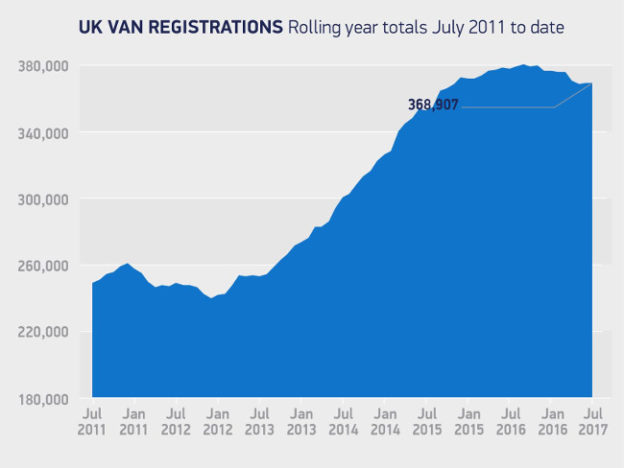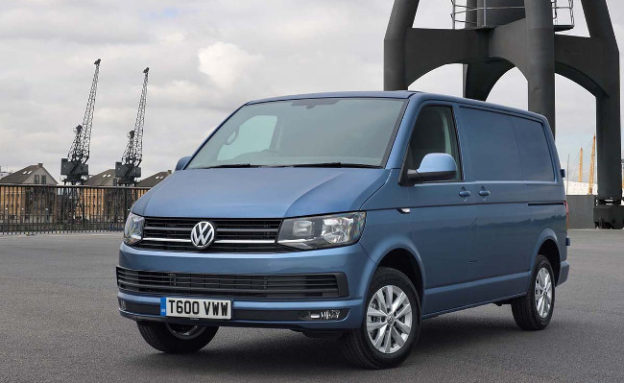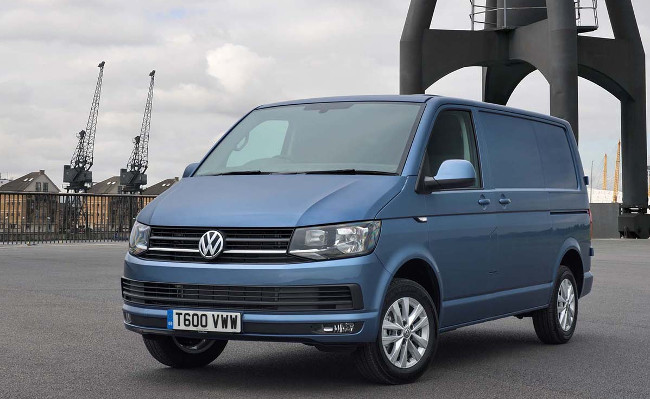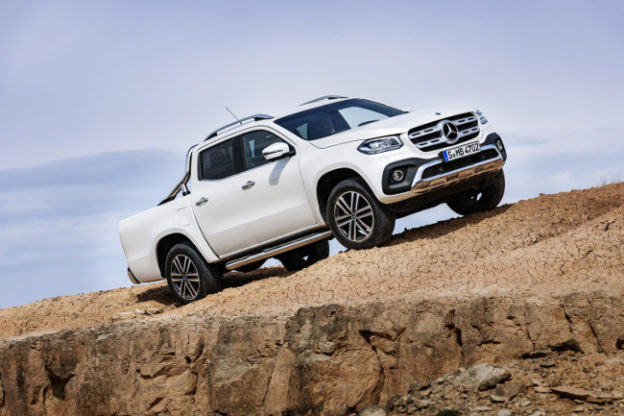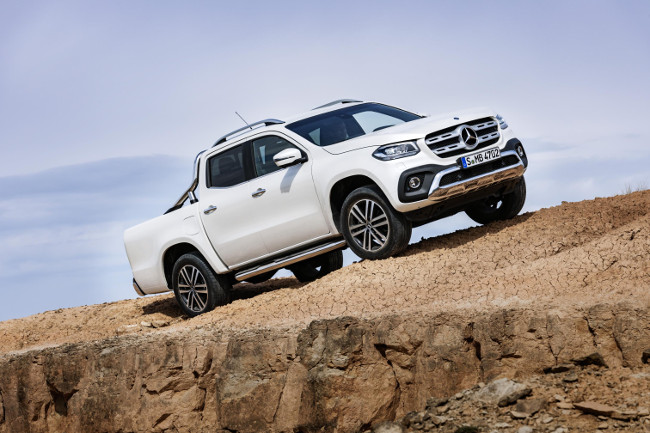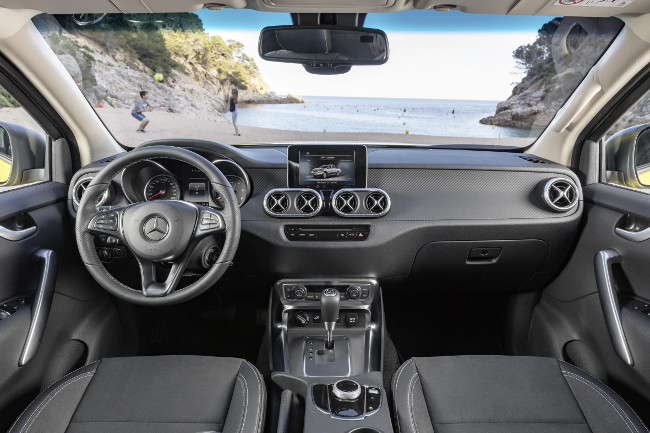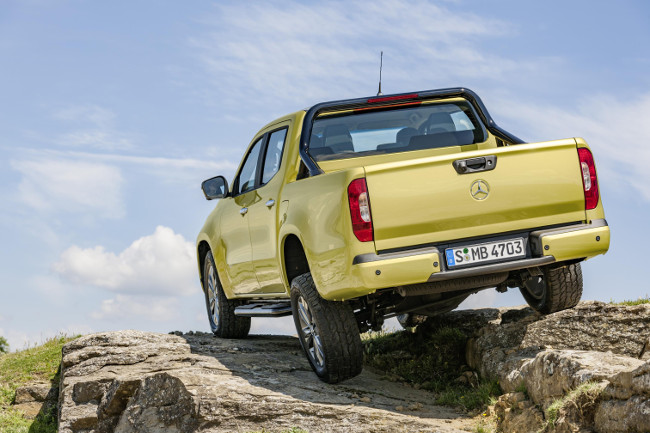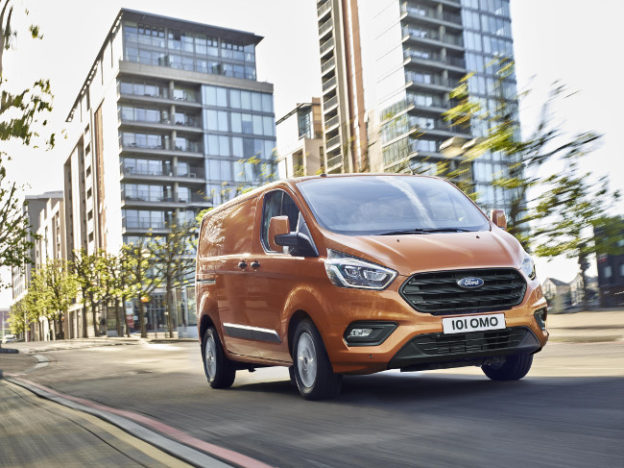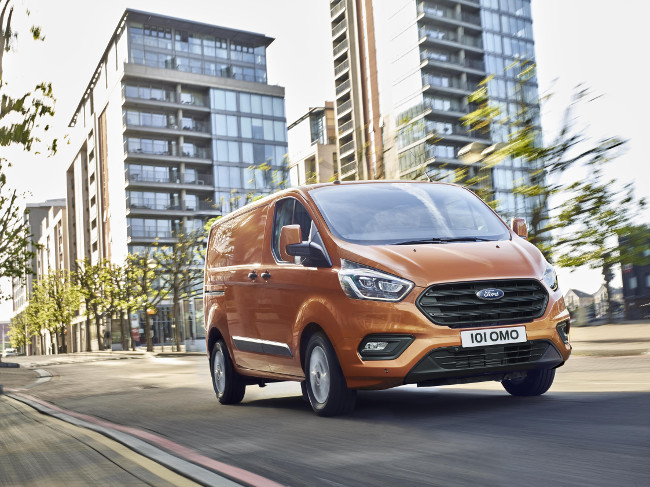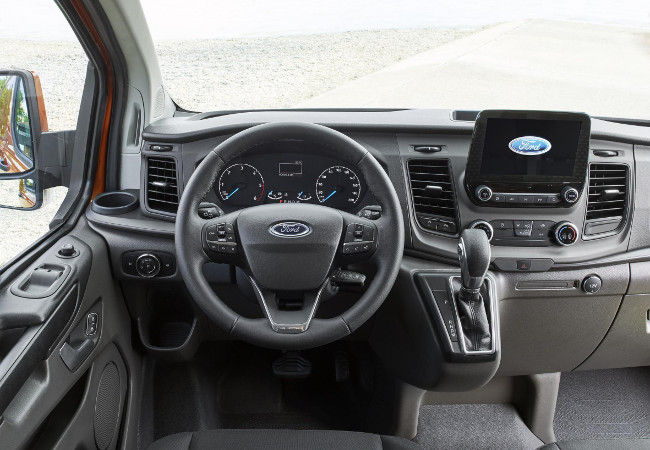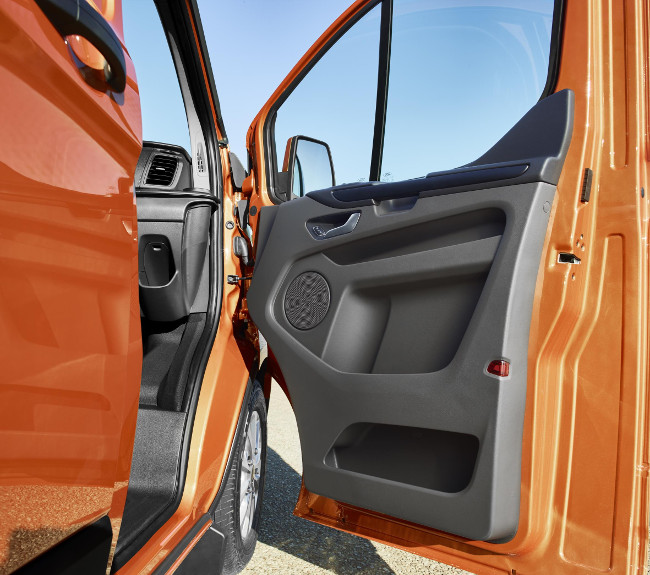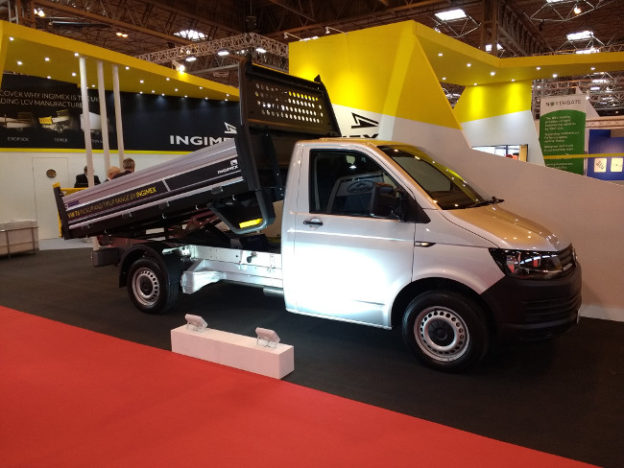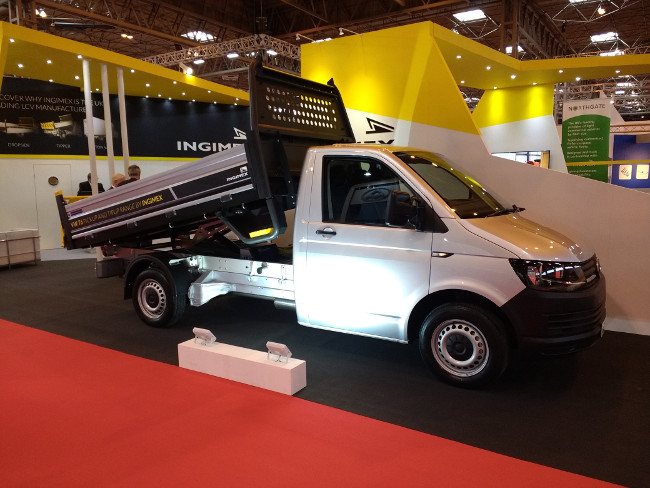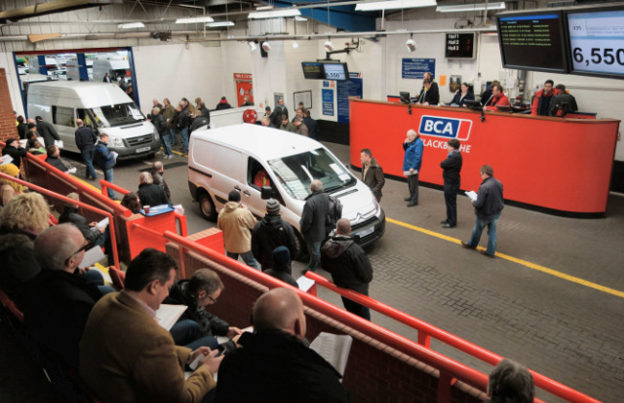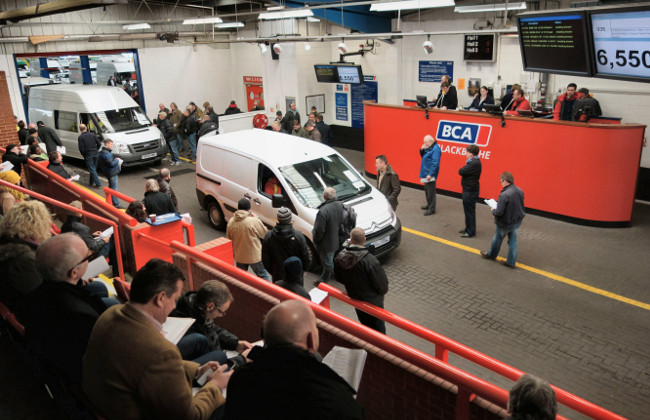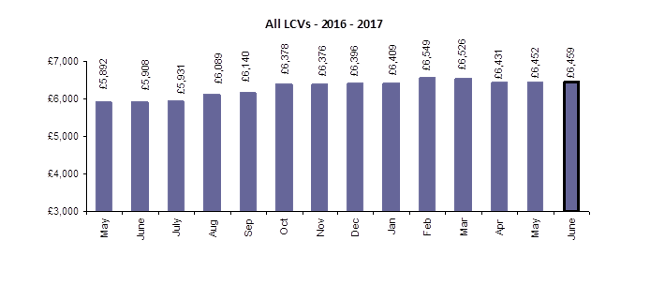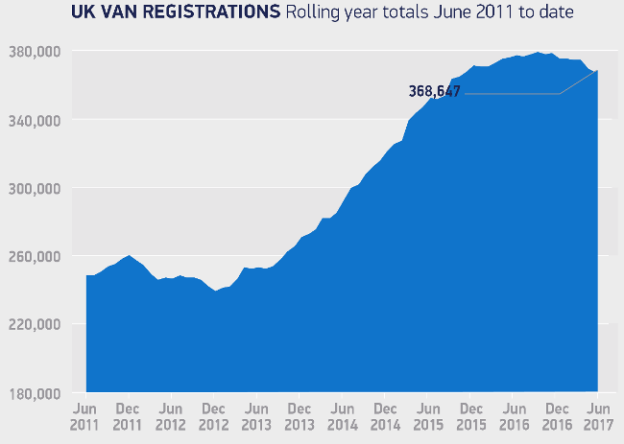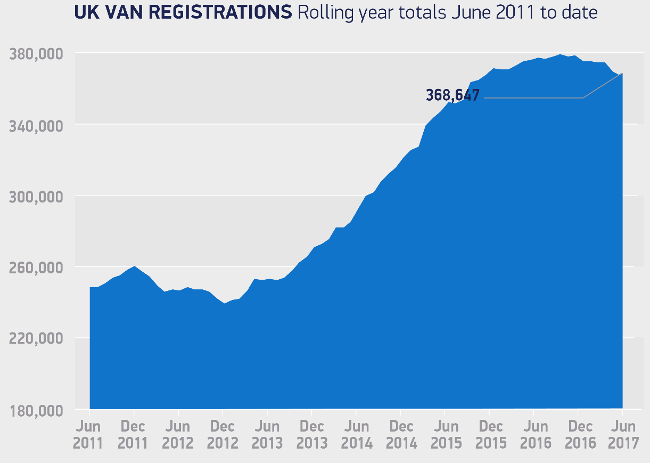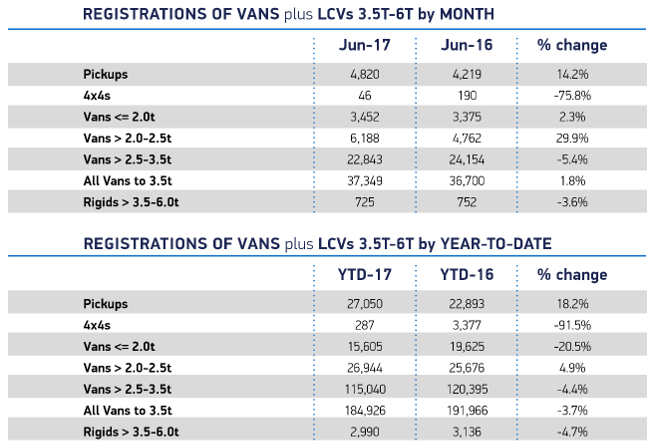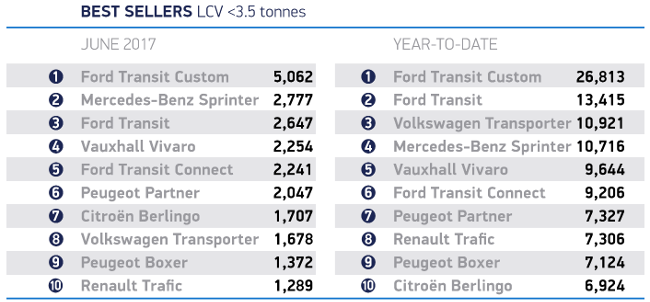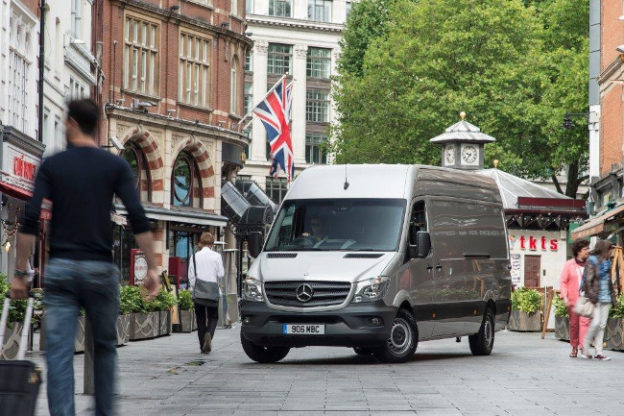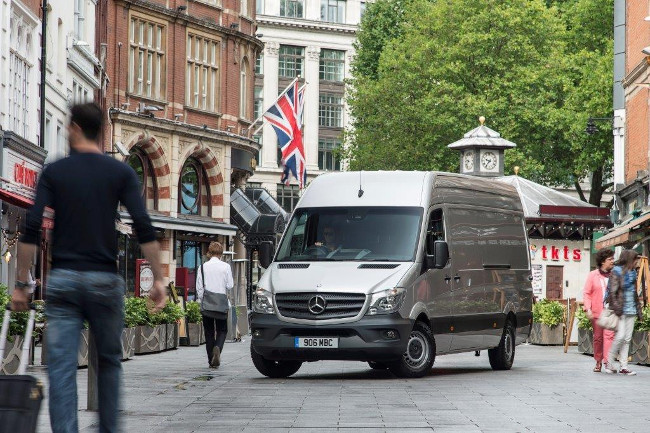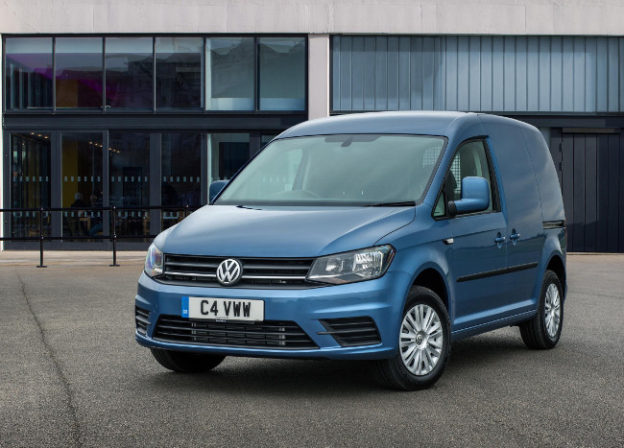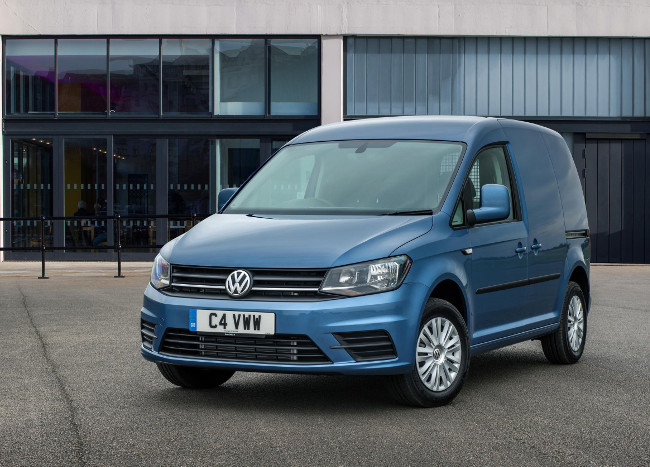A grand total of 24,766 new vans hit British roads in July 2017, 1.1% more than during the same period last year.
The new figures — from the Society of Motor Manufacturers and Traders (SMMT) — suggest that the van market remains stable and is not yet suffering from the slowdown being seen in the new car market.
So far this year, we’ve seen a 3.1% fall in the total number of new light commercial vehicles (LCVs) registered, compared to last year. Here’s how this looks compared to performance since 2011:
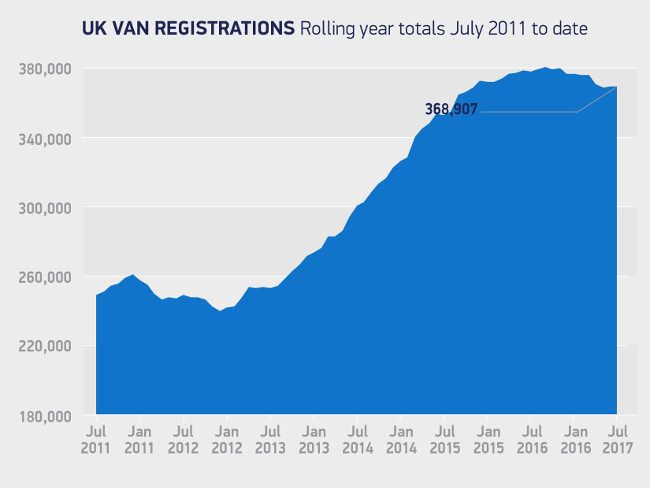
Van registrations for rolling years from July 2011 – July 2017 (courtesy of SMMT)
The top-performing sectors have been the 2.0t-2.5t van market (+9.2% YTD) and the pickup market (+14.8% YTD).
The highest-volume sector of the van market is the 2.5-3.5t segment. Sales here have declined in line with the market so far this year, falling 4.3% to 129,871 units.
The weakest sector has been vans with a maximum laden weight of under two tonnes. Registrations have fallen by 19.6% to 17.817 so far this year. In fairness, I suspect that the main reason for this decline is simply that there are now very few new vans which fall into this category.
July’s top sellers
There are few changes from last month in July’s list of top-selling van models. Ford continues to reign supreme. The Transit Connect, Transit Custom and Transit accounted for 27% of all vans sold in July, and occupy the top three slots in the bestseller list.
It’s a similar story for the year as a whole:
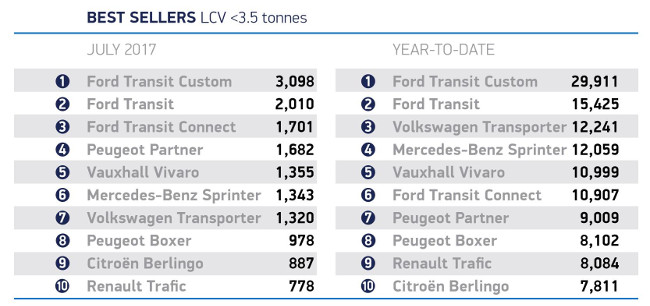
Best selling vans in July 2017 and for the year-to-date (courtesy of SMMT)

